Trying to Educate the Washington Post
Jared Taylor, American Renaissance, September 19, 2020
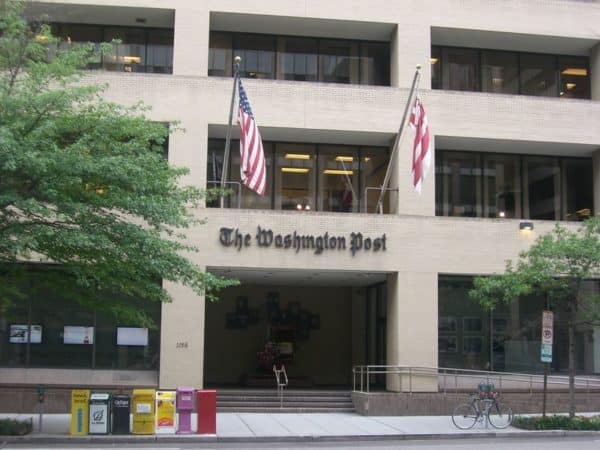
Credit Image: Michael Fleischhacker via Wikimedia
On July 22, I got a message from Isaac Stanley-Becker of the Washington Post, asking for my “perspective on recent events in the country and the president’s response to them.” I told him I would reply to his questions by email.
He sent a series of questions, to which I replied as follows:
Isaac Stanley-Becker: Protests against police brutality and racial discrimination have swept the country, at times tipping into chaos and violence. What do you make of this uprising, and what do you think it means for the country?
Jared Taylor: (A) It is a tragedy that this movement is based on false assumptions of “systemic” police bias. When individual officers misbehave, punish them, but we should not overlook vital facts: Your own Washington Post database found that last year only nine unarmed blacks were killed by police. Almost all were legitimate threats. Your database also shows that 19 unarmed whites were killed by police. About 25 percent of the people killed by police are black, but blacks account for 37 percent of arrests for violent crimes. This means that blacks are killed at a rate that is lower than a rate that would be consistent with their levels of criminal behavior and contact with the police. People have been so swept up in anti-police hysteria that they refuse even to listen to statistics on high black crime rates.
(B) Violence works. In 2017, a black Minneapolis police officer shot and killed an unarmed white woman. No one rioted. The justice system worked slowly, but the officer is now in prison. What if blacks had waited for the investigation of Derek Chauvin’s apparent crime? There would not be at least a billion dollars in corporate contributions to black causes. Statues of Columbus and even George Washington would not be coming down. People would not be mouthing idiotic slogans such as “white silence equals violence.” AP and New York Times would not have suddenly decided to capitalize “Black” but not “white.” There would not be a national paroxysm of white beast-beating. Ibram Kendi and Robin DiAngelo would not be at the top of the best-seller list. All this happened because of rioting, looting, and arson, not because of any shocking new revelations about racial injustice. Violence works. It works beautifully.
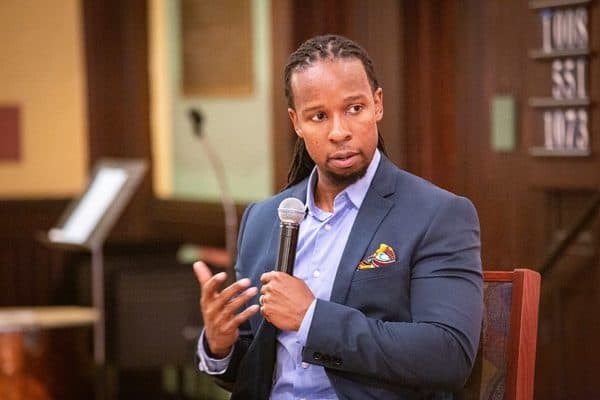
Dr. Ibram X. Kendi (Credit Image: Montclair Film via Wikimedia)
ISB: How do you view President Trump’s response to these events? Recently, the president has argued that white Americans suffer just as greatly at the hands of the police; he has defended the McCloskey couple in St. Louis; and he has renewed his defense of Confederate memorials. Are you cheered by these positions? Do you think the president is speaking for, and to, white Americans concerned about their place in the country? What is the message is he sending?
JT: Trump is all bark and no bite. He has not saved a single statue or prevented a single riot. He can’t stop the prosecution of the McCloskeys. He can’t keep Lee’s name on Washington and Lee University. However, I’m sure he spoke for millions of Americans — of all races — who are furious when mobs run wild while the police stand idle.
Trump does not speak for white people. He speaks for the police, for tradition, for America. Needless to say, that makes him a “racist” in the minds of people who hate the police, their past, and their own country.
ISB: You supported the president’s campaign in 2016 and called his election a “sign of rising white consciousness.” Some have been disappointed by his time in office, with his inability to halt immigration and his various entanglements with big business that some say compromise him. What do you say? Do you support his reelection?
JT: Trump has gone back on many of his campaign promises: repeal DACA on his first day in office, deport all illegal immigrants, build the wall and make Mexico pay for it, end birthright citizenship. I don’t think he promised these things because he has a racial consciousness, but because he doesn’t like people breaking the law to come here. I don’t think he has any sense at all that the United States must maintain a white majority with European traditions if it is to remain a recognizable part of Western Civilization.
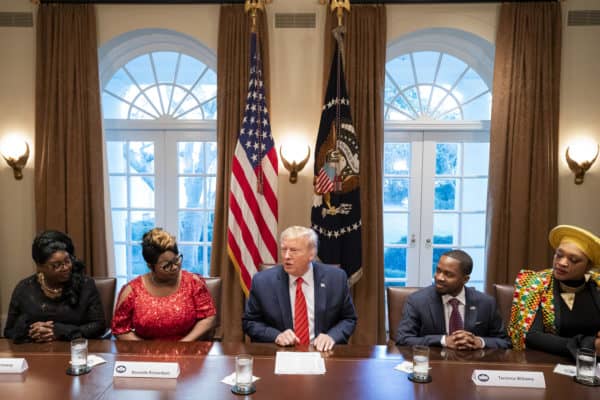
President Donald Trump meets a with African American Leaders, Thursday, Feb. 27, 2020, in the Cabinet Room of the White House. (Credit Image: © White House / ZUMA Wire / ZUMAPRESS.com)
ISB: In response to the robocalls you recorded supporting him in 2016, then-candidate Trump said, “I would disavow that, but I will tell you people are extremely angry.” Is that the position that his campaign still takes, do you think? Have you been able to make contact with any of his associates about how best to support him?
JT: I have never had contact of any kind with Mr. Trump or anyone who works with him.
ISB: What do you think Vice President Biden’s election would mean for your cause of white consciousness? Given demographic trends, do you think the country will ever again elect someone like President Trump, who has been willing at key junctures to articulate support for white identity?
JT: When has Donald Trump ever articulated support for white identity? You ask this question because merely not to join the hand wringing over “systemic racism” and “white privilege” — or to have noticed the vitriol in the BLM movement — is to be seen as at least morally defective if not an outright white supremacist. I think Donald Trump wants all people treated equally, and that’s all it takes to be seen as a tool of the Klan.
A Biden presidency could have various effects. The “woke” forces that have worked so hard to deplatform people like me might think they can back off on censorship because the Trump danger — which they constantly exaggerate — has passed. Or, Biden appointees could try to lift tax exemptions from dissident non-profits, pressure banks to close our accounts, and maybe even try to pass hate speech laws that would make it a crime to talk about race and IQ.
The last time a majority of whites voted for a Democrat president was in 1965. That means when Carter, Clinton, and Obama were elected, white people did not get the president they wanted. Unless the Democrats make the mistake of running really freakish candidates, I think demographic change means that Trump will be the last Republican president. But don’t forget: “The Great Replacement” is a loony conspiracy theory only white supremacists believe in, right?
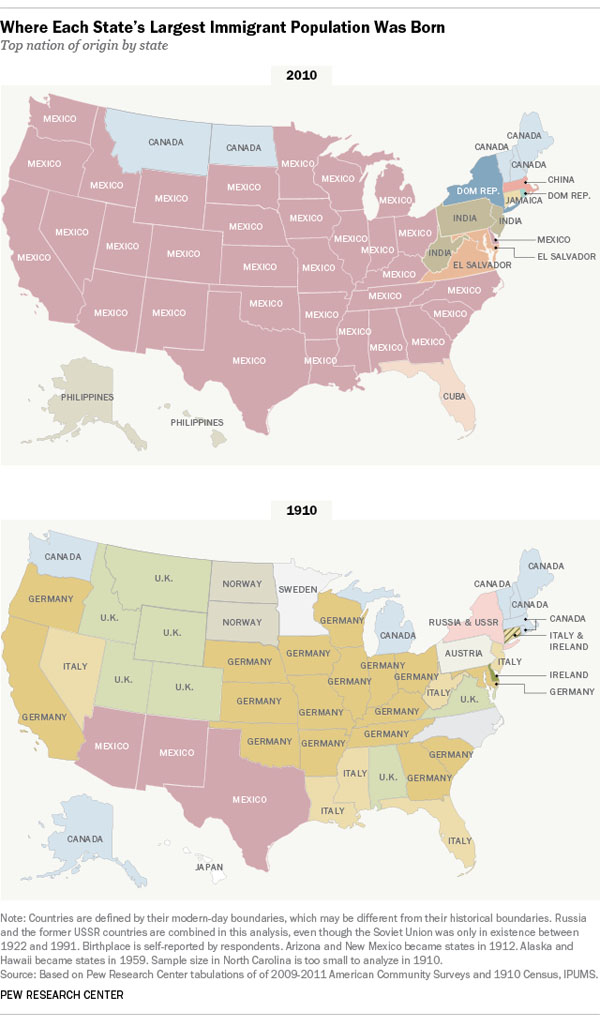
Mr. Stanley-Becker wrote back with follow-up questions, to which I replied as follows:
ISB: You write, “Trump does not speak for white people.” Why not? Do you feel that there is anything he or his campaign has done to signal to people concerned about white consciousness that they understand these issues? Further, if he is not speaking for white people, are there other elected officials who are?
JT: I’m not sure if you are asking why Trump doesn’t speak for whites or why I say he is not speaking for white people. I can’t answer the first question. However, if he spoke for white people he would: Openly oppose immigration that is reducing whites to a minority. Support the right of whites to have associations, communities, churches, neighborhoods, etc. in which they were the unquestioned majority. Explain at every opportunity that black failure to achieve at the same level as whites is overwhelmingly due to racial differences in IQ, and not because of made-up and useless concepts such as “white privilege” and “institutional racism.” Support the establishment of publications, think tanks, and legislative caucuses that promote the legitimate interests of whites just as similar groups promote the interests of non-whites. He has done none of these things. There is not a single American politician who would dare do these things.
I challenge you to cite one thing he has ever said that suggests he believes whites, as a group, have interests that they should defend.
ISB: Do you support the president’s reelection?
JT: Yes. He is much better than Joe Biden.
ISB: If Trump is the last Republican president, are there preparations that you and others with similar concerns are making over the next six months to prepare for that scenario? Does your approach change if and when Republicans are shut out of power? Can you win over Democrats, or perhaps members of smaller parties?
JT: Our approach does not change at all according to who is in power. Why should it? We are winning over Democrats all the time. Far more than you realize are appalled by the open contempt for whites that runs through that party. More and more ambitious white men are realizing there is no future for them in a party that thinks they are the great malefactors of American history.
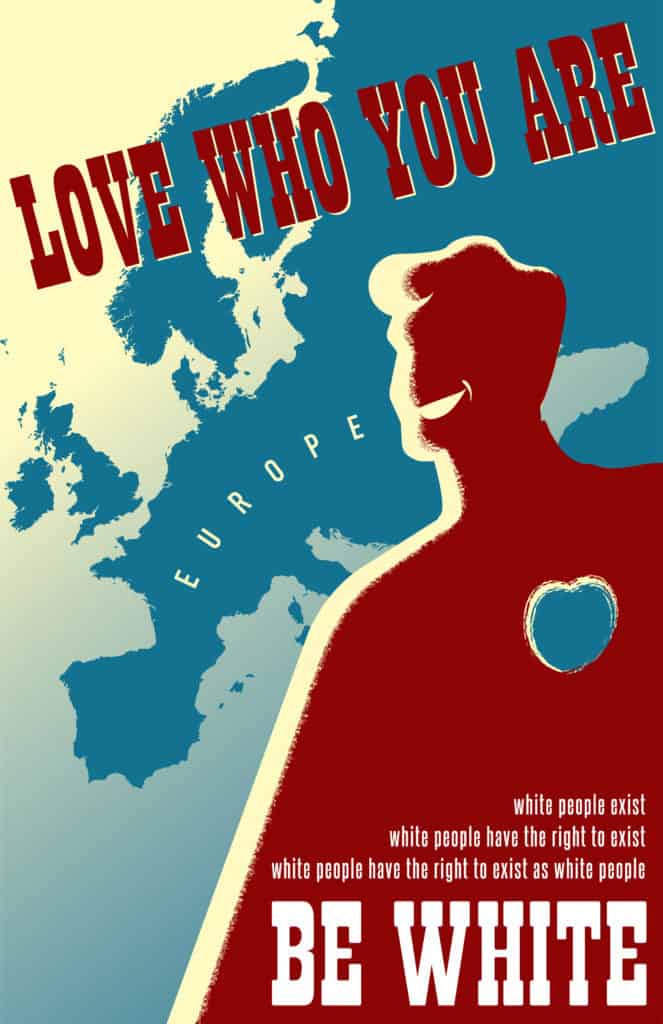
Mr. Stanley-Becker had more questions, to which I replied as follows:
ISB: On the question of the president’s reelection, do you think it’s likely? Increasingly signs point to his defeat. Are there steps you’re taking — akin to the robocalls in 2016 — to avert that possibility?
JT: I know only what the polls tell us, and the polls predict a Trump loss. To the extent that I have any influence among racially conscious white voters, I urge them to vote for Trump because he is vastly better than Biden, even if Trump may have disappointed them.
ISB: And is there really no difference who is in power? Is it not beneficial to your cause to have someone in the Oval Office who speaks out for white people brutalized by police; for white residents of St. Louis who arm themselves in response to protesters; and for Confederate memorialization?
JT: Do you really think someone is going to acquire a thoughtful, dissident understanding of race because of something Donald Trump says? If you believe that, it is only because you have nothing more than a caricature view of white racial consciousness. Of course, it would be surprising if anyone who writes for your paper did not have such a view.
Donald Trump has never said any of the things I noted earlier that he would have to say if he spoke for white people — to which I would add several more: That it is perfectly normal for people to prefer the company of people of their own race and culture. That a preference for one’s race and culture need not imply the slightest hostility for other races and cultures (I suspect you will refuse to believe this). That it *is* OK to be white, and that the panic that ensues when anyone says so proves that many people think it’s *not* OK to be white.
Even if Trump did speak for whites in an intelligent, coherent way, his boorishness would undermine his message.
Finally, what does it say about your understanding of race when you think the fact that Donald Trump “speaks out for white people brutalized by the police” makes him attractive to people you would no doubt call “racists”? Shouldn’t *everyone* speak out for white people brutalized by the police? If doing so makes a president suspect in the eyes of the media, it certainly helps explain why so many people distrust and even despise the media.

Credit Image: Old White Truck via Wikimedia
Mr. Stanley-Becker replied with a single question:
ISB: So is there really no difference who is in power? Should the prospect of a Republican president never again being elected concern people with white racial consciousness?
JT: I apologize if I did not make myself clear. In policy terms, there can be important differences between Republicans and Democrats: Democrats want to let in far more legal immigrants and refugees and don’t seem to care how many come in illegally. They are more insistent on amnesty for illegals. They are more brazen about race preferences that advantage blacks and Hispanics and hurt whites (and Asians). They are more aggressive about pushing integration in schools, neighborhoods, businesses, etc. They are more insistent that all disparities in white/black or white/Hispanic achievement are exclusively the fault of whites (they never talk about Asian/white differences in achievement). They are more obsessed with closing the racial gaps in test scores (but don’t care at all that Asians outscore whites). They are more aggressive about taking firearms out of private hands. They are more determined to remain deliberately blind to the facts about race differences in IQ and crime rates. They are more likely to suppress any scientific findings that counter the baseless idea that “race is a social construct.” They are more easily hypnotized by foolish slogans, such as “diversity is our strength” or “white silence is violence.” I’m sure there are other important differences I have left out, but I prefer Republicans in power because they slow white dispossession.
However, Republicans and Democrats differ only in degree and temperament. Republicans do not articulate or — I believe — even conceive of their policies in racial terms. The work of white advocacy remains the same no matter who is in power, because neither party ever enacts a policy or takes a position that reflects a real understanding of race. (Please recall that the idiotic “No Child Left Behind” law that required different racial groups to achieve at the same level in school had overwhelming bipartisan support and was signed by George W. Bush. Not one politician publicly predicted the obvious result: across-the-board failure. And no one learned anything from that failure).
And so, our work of education — which is so successful and irrefutable that social media have no option but to silence us — is the same, no matter who is in power.
I have not heard back from Mr. Stanley-Becker, nor am I aware of any article he has written that mentions our conversation.















